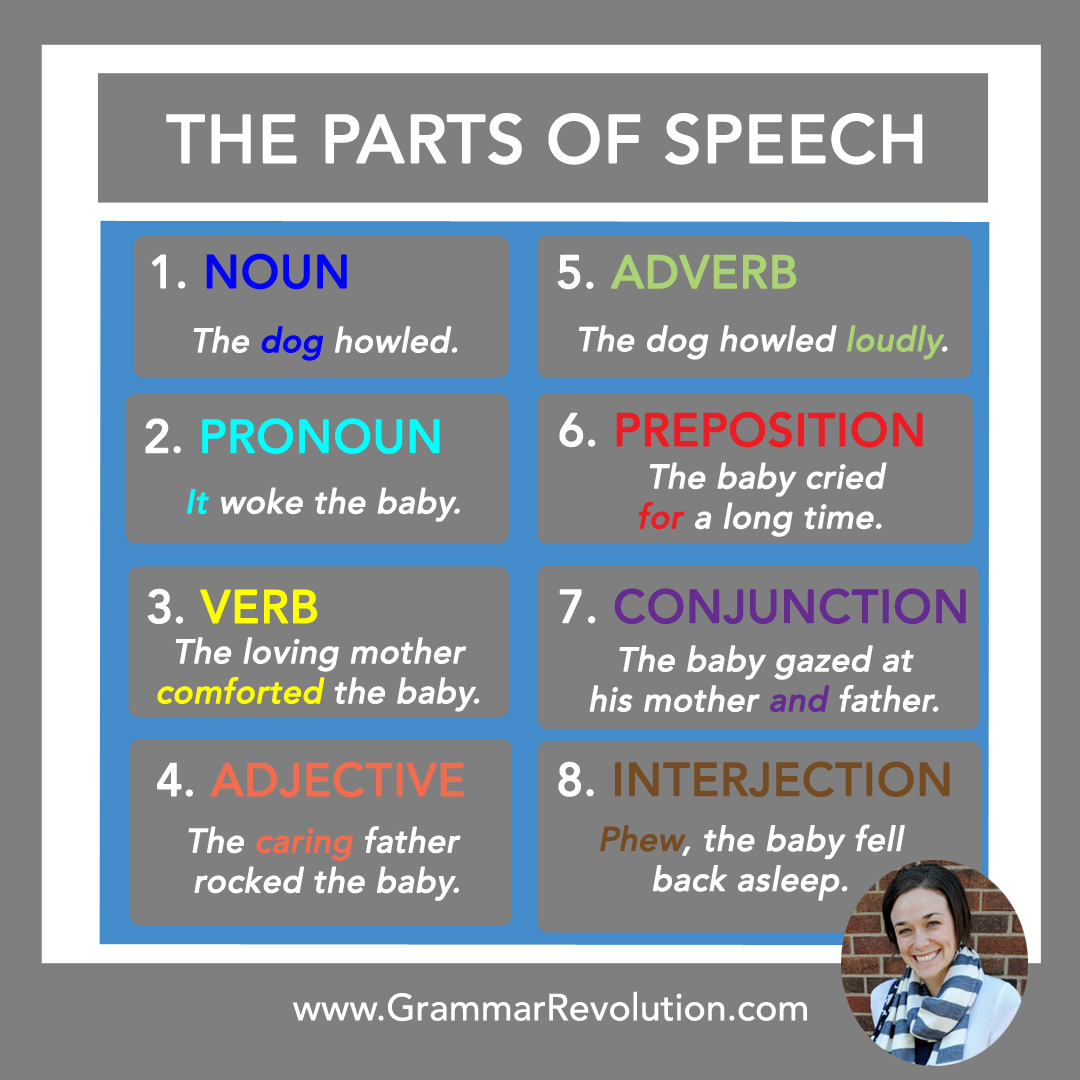
The term "part of speech" relates to the task or purpose of a phrase or word in a sentence. Words designated to the same part of speech have equivalent syntactic behavior (they perform similar functions within the grammatical framework of sentences) and often similar morphology (they receive inflection for similar qualities).Įnglish parts of speech include noun, verb, adjective, adverb, pronoun, preposition, conjunction, interjection, numeral, article, and determiner.Įvery word is a part of the spoken language.

“Break” (verb) + suffix -able = breakable.įinally, many adjectives become adverbs by adding the suffix - ly.A part of speech or part-of-speech (short form as POS or PoS) is a subcategory of words (or, broadly, lexical objects) with comparable grammar qualities in classical grammar. Lastly, for making adjectives from verbs, we have the suffix -able. These adjectives can have a sense of either continuation (- ing) or completion (- en or - ed). Sometimes participles are used as adjectives. “Study” (verb) + suffix - ious = “studious” “Create” (verb) + suffix - ive = “creative” To turn some verbs into adjectives, we can use the suffixes - ive, - ious, - ing, -ed/ -en and - able. Let us move on to making adjectives from verbs! This word means relating to history or past events. “History (noun) + suffix - ical = historical This word means important or famous in history.

“History” (noun) + suffix - ic = historic “Organization” (noun) + suffix -al = “organizational” The suffix -y means to be characterized by. “Emotion” (noun) + suffix -less = “emotionless” The suffix - ful means having the quality of the noun. “Beauty” (noun) + suffix – ful = “beautiful”Ĭhange the “y” to “i” and add the suffix –ful. To change some nouns into adjectives we can use several endings: -ful, -less, -y, -al, -ic, and -ical. This way we can create several words from the base form in English. We add suffixes to the end of the base form of a word to change the part of speech.

Loudly is the adverb that describes the verb “cry” in the past tense. The adjective, “orange” describes the color of the cat which is the noun. Let us look at an example with all four major parts of speech: Content words often appear as one of the four major parts of speech: nouns, verbs, adjectives and adverbs. Words that add meaning to a sentence are known as content words. Now, we will create adjectives and adverbs with suffixes. Last week we looked at creating nouns and verbs by adding suffixes to words.

Can you give me some advice about learning words, please? What is the best way of learning words? I am very confused about this subject. Hello! This week on Ask a Teacher, we will continue to answer Erol’s question about learning new words by using suffixes to create adjectives and adverbs.


 0 kommentar(er)
0 kommentar(er)
